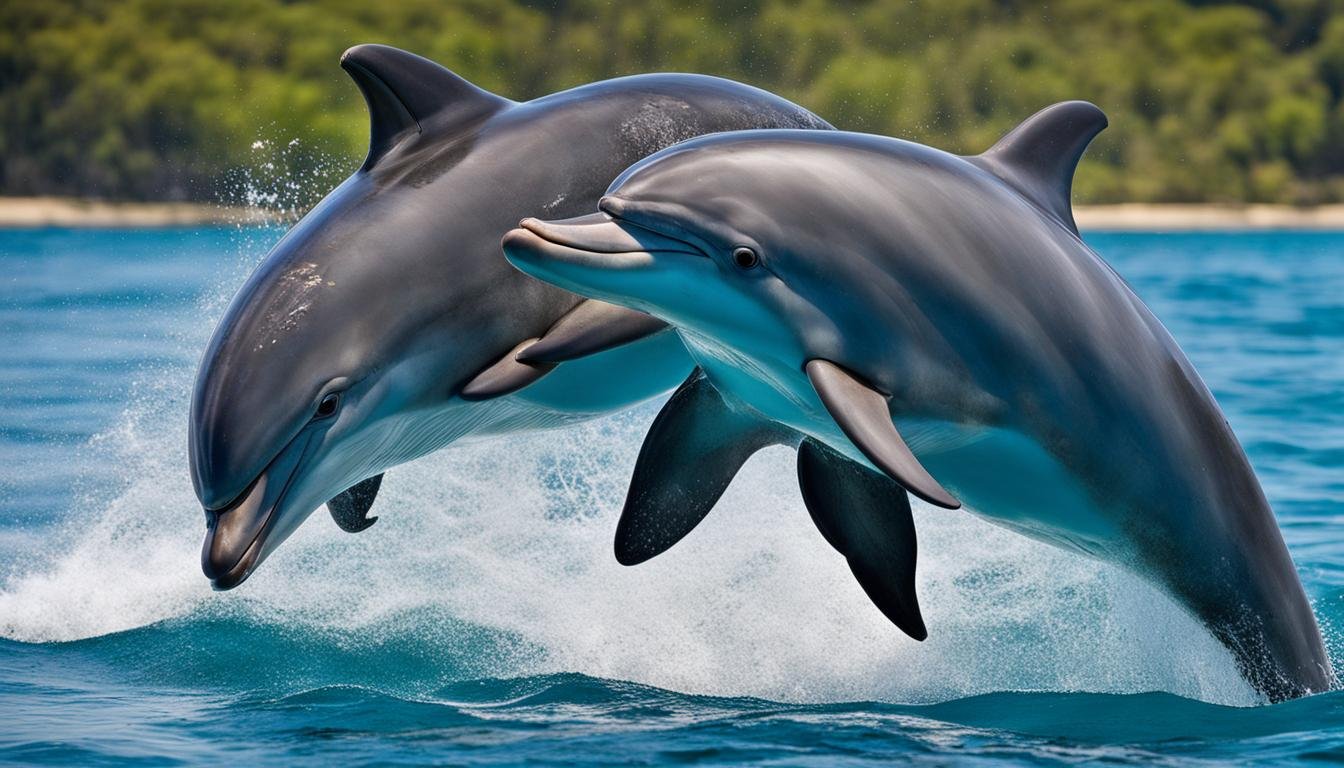15 Facts About Dolphins That Will Surprise You
1. Highly Intelligent Marine Mammals
Dolphins are highly intelligent marine mammals known for their advanced cognitive abilities. They belong to the cetacean family and are closely related to whales and porpoises. Dolphins have large brains relative to their body size and exhibit complex behaviors, problem-solving skills, and social interactions.
2. Playful and Curious Nature
Dolphins are renowned for their playful and curious nature. They often engage in activities such as riding waves, playing with objects, and even interacting with other marine creatures. Their love for play is not only entertaining but also serves as a way to hone their skills and social bonds.
3. Echolocation
One of the most remarkable features of dolphins is their use of echolocation. They emit high-frequency clicks and interpret the returning echoes to navigate their environment, locate prey, and communicate with other dolphins. This sophisticated sonar system is crucial for their survival in the underwater world.
4. Social Structures and Pod Life
Dolphins are highly social animals and often form pods, which are groups that can vary in size from a few individuals to several hundred. Within these pods, dolphins establish strong social bonds, engage in cooperative hunting, and display a range of communication behaviors.
5. Communication and Vocalizations
Dolphins communicate using a diverse range of vocalizations, including clicks, whistles, and body movements. Each dolphin has a unique whistle, which may function as a form of individual identification within the pod. Vocalizations play a key role in coordinating group activities and maintaining social connections.
6. Maternal Care and Bonding
Female dolphins exhibit strong maternal instincts and invest considerable time and effort in caring for their calves. Mother-calf bonding is crucial for the survival of the young dolphins, and mothers are known to be protective, providing guidance and support as their offspring learn essential life skills.
7. Speed and Agility
Dolphins are known for their remarkable speed and agility in the water. They are powerful swimmers, capable of reaching high speeds and performing acrobatic maneuvers, including jumps, flips, and spins. Their streamlined bodies and muscular tails contribute to their aquatic prowess.
8. Global Distribution
Dolphins are found in oceans and seas worldwide, inhabiting both saltwater and freshwater environments. Different species of dolphins have adapted to various habitats, from coastal areas and estuaries to open ocean waters.
9. Feeding Strategies
Dolphins employ various feeding strategies depending on their species and the availability of prey. Some species hunt individually, while others cooperate in groups to corral and capture schools of fish. Certain dolphins are also known to use innovative techniques, such as using sponges to protect their noses while foraging on the ocean floor.
10. Longevity and Lifespan
The lifespan of dolphins varies among species, but many can live for several decades. Bottlenose dolphins, for example, may live well into their 40s or 50s in the wild. Factors such as environmental conditions, predation, and human-related threats can influence their longevity.
11. Threats and Conservation
Dolphins face various threats, including habitat degradation, pollution, entanglement in fishing gear, and climate change. Conservation efforts focus on protecting their habitats, implementing sustainable fishing practices, and raising awareness to mitigate the impacts of human activities on these charismatic marine mammals.
12. Cultural Significance
Dolphins hold cultural significance in many societies, often symbolizing attributes such as intelligence, playfulness, and protection. They feature prominently in folklore, mythology, and art across different cultures, further emphasizing the deep connection between humans and dolphins.
13. Dolphin-Assisted Therapy
The friendly and sociable nature of dolphins has led to the development of dolphin-assisted therapy programs. These programs aim to provide therapeutic benefits for individuals with various physical and psychological conditions, leveraging the calming and interactive presence of dolphins.
14. Captivity and Marine Parks
The practice of keeping dolphins in captivity for entertainment purposes has sparked ethical debates. Concerns include the well-being of captive dolphins, the impact on their natural behaviors, and the ethical considerations of using intelligent and social animals for public display. Public awareness campaigns and changes in public attitudes have led to increased scrutiny of marine parks and a growing emphasis on conservation and education.
15. Extraordinary Human-Dolphin Interaction
Dolphins have displayed an extraordinary ability to interact positively with humans. Instances of dolphins assisting distressed swimmers, guiding boats through challenging waters, and forming bonds with individuals have been documented. These interactions highlight the complex and unique relationships that can develop between humans and these remarkable marine beings.
Dolphin Quiz
How well do you know dolphins? Test your knowledge here!








